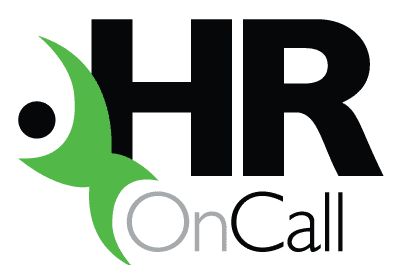Without a dedicated Human Resources expert in your business, the struggle is always on to find the right people, develop and keep good staff, manage conflict when it arises, and generally keep on top of your HR obligations. In this article, we take you through the three most common HR problems SMEs encounter and give you some advice about what to focus on and how to get it right.
Getting HR right matters
All employers are faced with HR challenges from time to time. But when you are running and growing a small business, you are often forced to juggle too many things at once. With time stretched and other needs and issues competing for your attention – HR could be the ball you drop. But it’s one area of your business that definitely needs expert guidance and support, whether internal or outsourced because people are the life-blood of your organisation.
Problem 1: Recruitment and training
Finding the right people can be time consuming and expensive. It may take months to go through the advertising, interview and offer process. Recruitment is a massive time commitment that takes you away from other important tasks and projects. And at the end of it all, it can be difficult to know whether you’ve found the right person. Then comes the onboarding and training to get your new employee up to speed and ensure their skills are continually developed in line with your business needs.
The most common errors SMEs make when it comes to recruitment and training are:
- Not having up to date and properly defined position descriptions
- Focusing only on technical fit and not considering the personality and cultural fit of a new employee
- Offering insufficient induction and onboarding to new staff
- Not keeping up to date with training or providing insufficient training which makes it more difficult, or even dangerous, for employees to carry out their duties
- Inefficient recruitment practices which make the process time-consuming and ineffective
FIXES
- Make sure your position descriptions are up to date and complete with all relevant criteria, including experience, skills, qualifications and education
- Make sure you ask behavioural based questions to ensure the candidate is the right cultural fit for your business
- Make sure new staff have everything they need to hit the ground running
- Make training, especially safety training, a priority for your business
- Hire a dedicated HR expert within your business or use an on all call HR consultant to bring in all these crucial skills
Problem 2: Compliance and conflict
HR compliance and conflict management are both about managing risk to your business. Compliance is about meeting all your obligations as an employer under the law. This includes hiring policies, bullying, discrimination and harassment processes, wages and remuneration, holidays, superannuation and other benefits and workplace safety considerations. This isn’t an exhaustive list and even when you feel on top of it all, HR laws are always changing, so staying up to date is a must.
Conflict management is another reality of HR that can be very difficult for some business owners to manage. Many people feel uncomfortable tackling disagreements, dissatisfaction and claims of workplace discord directly. However, it’s vital to deal with issues as they arise competently and comprehensively – and look for ways to minimise the potential for conflict in the future.
The most common errors SMEs make when it comes to conflict and compliance are:
- Not understanding current HR legislation and employer obligations
- Not staying up to date with legislative changes to HR
- Ignoring or avoiding conflict in the workplace can lead to stress, claims of bullying or harassment, lost productivity and even losing valuable employees
FIXES
- Your business must have a dedicated HR expert who’s across all relevant HR laws. It’s simply too important to get wrong, and the risks aren’t worth it
- Staying current and up to date is crucial. HR laws are changing all the time and it’s the employer’s obligation to stay up to date
- Conflict must be managed proactively, skilfully, and according to the law
Problem 3: Managing HR needs without an in-house HR team
We totally get it! As a small business owner, you have so much going on, and you just want to get through your to-do list as efficiently and cheaply as possible. HR can seem like one of those things you can just wing – and it may have worked in the early days when your business was just starting out. But as your business grows and your workforce increases, new complexities and requirements come into play. Getting HR right means setting your employees up for success – and that helps set up your business for success too.
Managing HR risk is also another critical consideration as your business grows. Don’t risk all that you’ve built by missing critical HR rules or inadvertently doing the wrong thing. Your business needs expert HR advice and guidance, especially as you get bigger. This can come in the form of employing a dedicated HR professional or HR team in-house or bringing in an expert HR consultant to support you on an ongoing basis.
The most common errors SMEs make when it comes to managing HR needs without an inhouse HR team:
- Taking on the role of HR yourself and creating excessive stress and lack of time to complete your other tasks
- Assigning line managers without formal HR skills HR tasks and risking non-compliance
- Doing the bare minimum when it comes to HR and hoping for the best
FIXES
- Recruit an internal HR professional or grow your internal HR team
- Bring in an on-call HR professional to support you and your business
You’re on-call HR solution
We’re here for you when you need us. Our consultants are proven, experienced HR experts ready to work with you and support your business. We can guide you towards an efficient, compliant and effective approach to all your HR needs and solve your HR problems without the lead time and overheads of investing in an in-house resource.
Get in touch for a free 15-minute initial consultation by calling 1300 872 566


